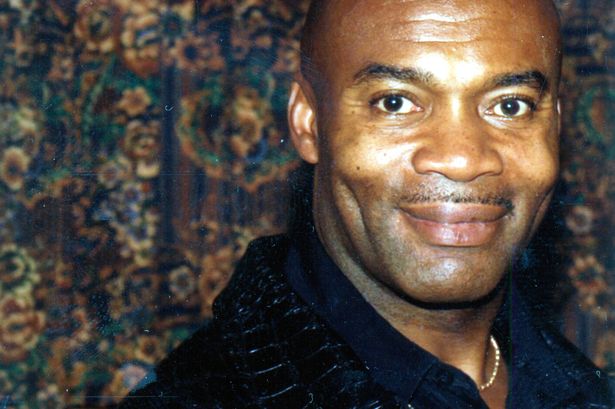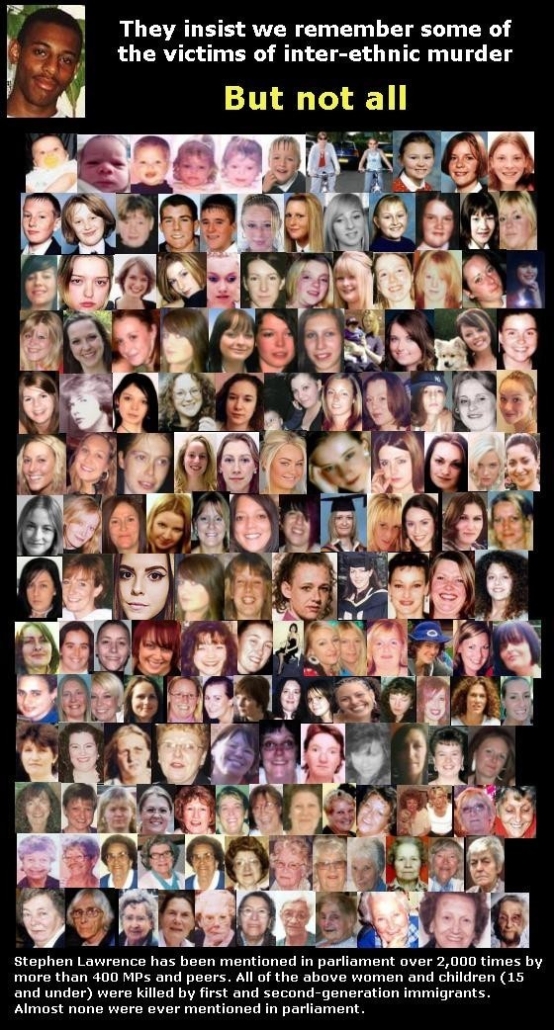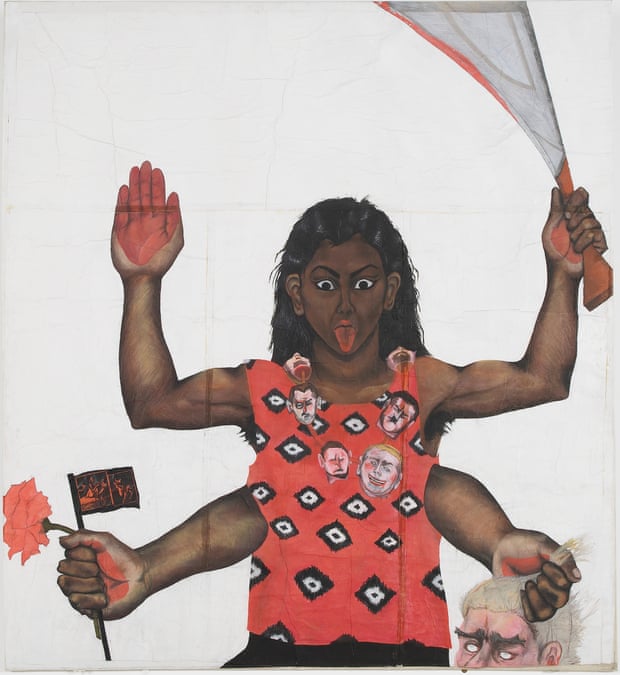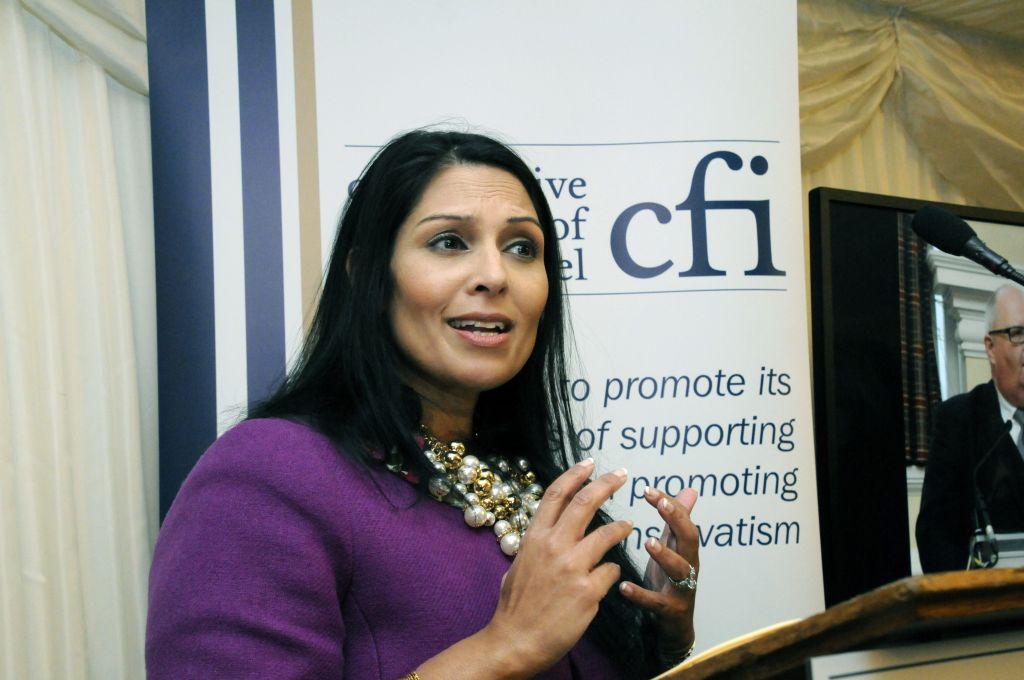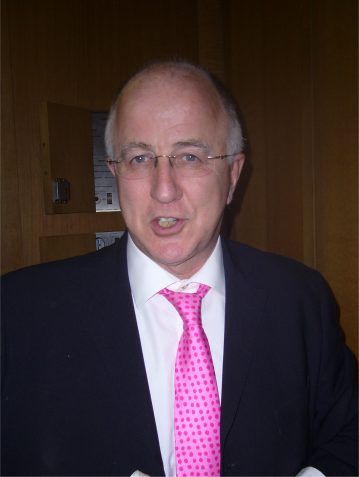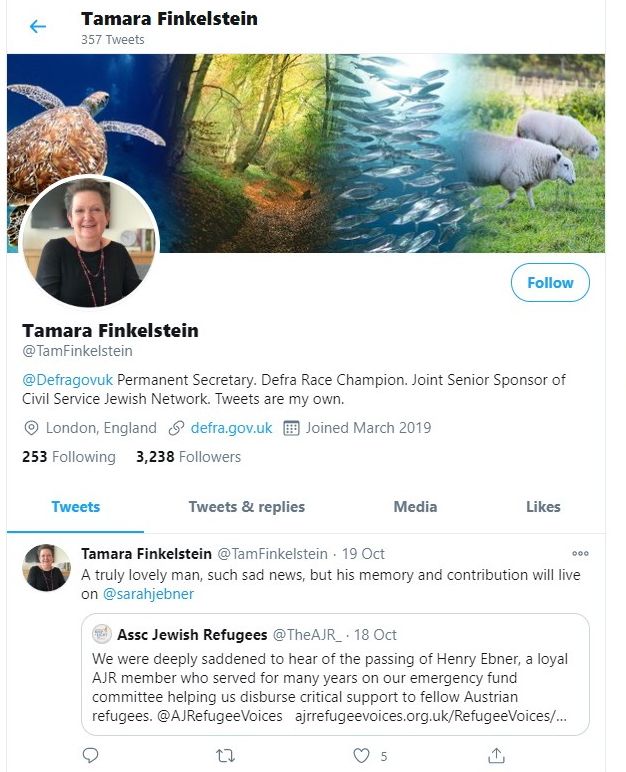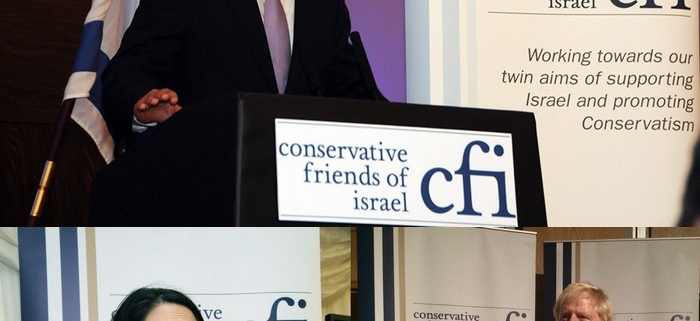Murder of a Mensch: Cuckservatives, Crypto-Jews and Catch-22s
The central aims of leftism are very simple: to win power, to punish its enemies, and to destroy the West. The central principle of leftism is also very simple: “Heads we win; tails you lose.” Whatever works for leftism is ruthlessly exploited; whatever works against leftism is ignored or reversed. For example, minor infractions or perfectly legal acts by the right are labelled serious crimes and harshly punished; serious crimes by the left and its favorites are censored or brazenly lied about.
Self-defense is no offense
Americans have seen this leftist principle hard at work since the self-inflicted death of the Black thug George Floyd in May 2020. During the Summer of George, Black Lives Matter (BLM) and its antifa allies rioted, looted, burned, and murdered for months on end with both the complicity and the approval of leftist media and officialdom. Their very serious crimes went unchallenged and unpunished. Thanks to the self-righteous anti-police campaigning of BLM, murders have risen sharply among young Black men, the very group the left claim to be seeking to protect from “police brutality.” And all this is censored or brazenly lied about by the left.
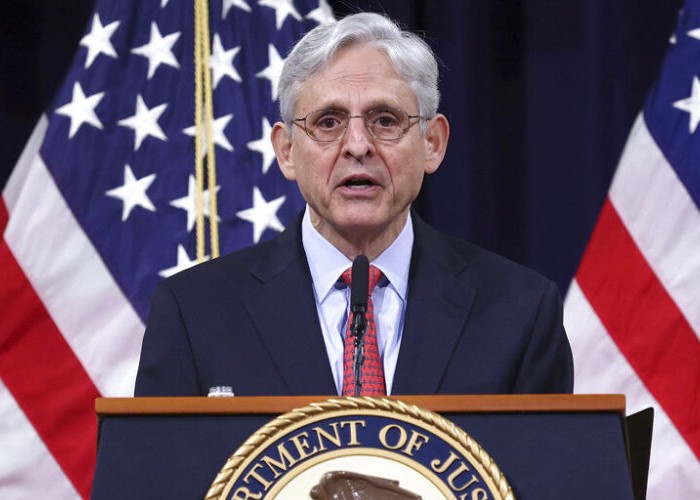
He looks sinister because he is sinister: US Attorney-General and Jewish supremacist Merrick Garland
But when a misguided right-wing mob trespassed briefly in the US Capitol in January 2021, the left reacted as though the Apocalypse were upon us. The trespass was “domestic terrorism,” a “deadly assault” on democracy itself, and, according to the Jewish leftist Rebecca Solnit, nothing less than a “coup attempt.” And even as Black and antifa thugs walk the streets unmolested, Solnit’s co-ethnic Merrick Garland, the sinister Jewish Attorney-General in Biden’s Bolshevik cabinet, has poured huge resources into fighting “white supremacy.” The Capitol trespassers have been tracked down and imprisoned, often in solitary confinement and in filthy conditions, before they go on trial on inflated and unjust charges. Also in jail is Kyle Rittenhouse, the young right-winger who coolly and expertly defended his life against a murderous assault by three people, including two Jews, one of whom was a convicted pedophile. If Rittenhouse were non-White or antifa, he would have been released long ago and his deadly shooting would have been accepted as a perfectly legal act of self-defence against bloodthirsty thugs. “Heads we win; tails you lose.”
Somali enrichment strikes again
Across the Atlantic in Britain, the same power-hungry leftists apply the same principle. But even I was taken aback by the leftist reaction to the murder of the supposedly right-wing Conservative politician Sir David Amess on October 15, 2021. The alleged murderer is Ali Harbi Ali, a Muslim “of Somali heritage” (in smarmy leftist parlance) and the murder took place soon after Angela Rayner, Labour’s fiery (and possibly psychopathic) deputy leader, had described Conservatives as “scum … homophobic, racist, misogynistic … scum.” You might think this was embarrassing for the left: a right-wing White man is murdered by a Black Muslim shortly after a left-wing White woman “dehumanizes” right-wing White men. Not a bit of it: the leftist media ignored Rayner’s remark and used the murder to campaign loudly for more censorship of right-wing “hate.”
When a Somali Muslim murders a “much loved” politician, this might appear to be yet more evidence that critics of Third-World immigration are correct. But not to the left, for whom David Amess’s murder is yet more evidence that we must try harder to silence critics of Third-World immigration. After the murder, leftists constantly invoked the saintly Labour MP Jo Cox and her murder by a “right-wing extremist” in 2016. The leftist Andrew Marr “spent his Sunday morning show on the BBC questioning the Home Secretary [Priti Patel] about online anonymity.” There is so far no evidence that “online anonymity” played any role in the murder, but Marr takes his ideas on political discourse straight from the pages of Nineteen Eighty-Four: “It is intolerable to us that an erroneous thought should exist anywhere in the world, however secret and powerless it may be.”
A cuckservative cucks
And if you had judged by one BBC Radio news-broadcast, the true victim of Amess’s murder was the still-very-much-alive left-wing Black MP Diane Abbott, who was interviewed caringly about the abuse she suffers online. But I’ll freely admit it: I feel much more sympathy for Diane Abbott than for David Amess. Abbott isn’t a traitor; Amess was a traitor. She’s Black and she works for Black interests; he was White and he worked against White interests. I’m happy to see Abbott satirized and mocked, but I don’t think she should receive foul-mouthed abuse and threats of violence. I don’t think David Amess should have been stabbed to death either, but I cannot feel any sorrow at what happened to him. He was a cuckservative whose official website proves that he was complicit not only in his own murder but also in the murder, rape, and ethnic cleansing of countless ordinary Whites, past, present, and to come:

A cuckservative cucks: David Amess supports “refugees” and an anti-White leftist charity
Sir David Joins British Red Cross To Celebrate Refugee Week
On Monday 17th June [2019], Sir David Amess MP met with the British Red Cross to mark Refugee Week 2019 and hear about the challenges facing those as they rebuild their lives in the UK.
The Southend West MP took the opportunity to speak with the charity’s refugee ambassadors, who shared their own stories fleeing conflict and persecution. Sir David learnt about the challenges faced by those arriving in the UK, and what more the Government can do to help refugees resettle, work and study here.
The event marked the start of Refugee Week (17th-23rd June), and the launch of the British Red Cross’ “Every Refugee Matters” campaign. Aiming to highlight the issues that many refugees face, the charity have produced a new film along with those with first-hand experience of the challenges in UK asylum system.
Speaking after the event, Sir David said: “I am proud to be supporting the work of the British Red Cross this Refugee Week, and the brilliant work they do helping those most in need rebuild their lives here in the UK. Speaking to the refugee ambassadors was an invaluable experience to hear directly from who have had first-hand experience of some of the barriers blocking them from working, accessing education and healthcare. It is vital that we are able to help and provide protection to the world’s most vulnerable.” (Sir David Joins British Red Cross To Celebrate Refugee Week, 18th June, 2019)
[David Amess comments on] Black Lives Matter
I have received many emails about the events in America which we have seen unfolding on our TV screens. I have been shocked, horrified and repulsed at the murder of a US citizen by a policeman, with three officers standing by and doing nothing to help. Absolutely unforgivable in every respect. I was deeply moved by the appearance of the brother of George Floyd, who visited the scene of the murder and appealed for peace and calm. I do hope he is listened to. I absolutely despair at American politics at the moment and have made representations to government Ministers. I have also added my name to the cross-party letter to Liz Truss asking the government to freeze exports of riot control equipment to the United States. (Black Lives Matter, 4th June 2020)
Amess was supposedly a right-winger, but there was nothing right-wing about his support for “refugees” and Black Lives Matter. Those posts at his website prove that he was a cuckservative allied with leftism, which is why the Guardian, without the slightest trace of irony, called him a “much loved” politician and “devout Catholic.”
Fake Catholic, fake Pope
I strongly disagree with the Guardian’s second claim: Amess was a fake Catholic whose pro-refugee and pro-BLM views chimed perfectly with those of the Anti-Pope currently occupying the throne of St Peter. If Amess had been genuinely right-wing and genuinely Catholic, the Guardian and the rest of the leftist media would have hated him and found it difficult to conceal their satisfaction at his death. True Christians are not loved or respected by enemies of Christianity, as Christ himself prophesied: “And ye shall be hated of all men for my name’s sake: but he that endureth to the end shall be saved.” (Matthew 10:22)

Anti-Pope Francis kisses the feet of Muslim invaders
And if Amess had been a genuine Catholic, he would never have been called a “real mensch” by one of his many Jewish fans:
Jewish groups express shock over ‘horrific’ killing of MP Sir David Amess
Jewish groups have expressed their “profound sorrow” at the killing of Conservative MP Sir David Amess. In a statement, the Board of Deputies said they were devastated to hear that Sir David had died following a stabbing at his constituency surgery.
“We will never forget Sir David’s long and deep friendship to our community. Our hearts go out in profound sorrow to his wife Julia and children Katie, Sarah and David Jr,” they said. Steve Wilson, CEO of United Synagogue, said the parliamentarian’s murder was “horrific and chilling”. … The Jewish Leadership Council expressed their shock. “He always had a very strong and warm relationship with his local Jewish community. Our thoughts are with his family and friends at this time,” they said. Karen Pollock, Chief Executive of the Holocaust Education Trust, said: “We are shocked and saddened at the tragic loss of Sir David Amess MP. A long time supporter and campaigner for the Holocaust Educational Trust, joining us at every gathering, and encouraging us in everything we did. Our thoughts and prayers are with his family at this difficult time.”
Southend rabbis also paid respect to the MP. Rabbi Geoffrey Hyman of Southend shul described Sir David as “a real mensch”. He said: “We are absolutely devastated by the murder of Sir David Amess, our local MP. He had a very close relationship with our Jewish community here in Westcliff. Always supportive and sympathetic to our members and causes. He attended numerous events at our synagogue. We are deeply saddened and send our condolences to his dear family…. May he rest in peace.”
Sir David previously served as the honorary secretary of Conservative Friends of Israel. From the 1980s, he campaigned for the erection of a statue honouring Raoul Wallenberg, a Swedish diplomat who saved thousands of Hungarian Jews from deportation while the country was under Nazi occupation. Eventually he succeeded, and in 1997 Queen Elizabeth unveiled the statue, located outside Western Marble Arch Synagogue. Earlier this year, speaking at the Holocaust Memorial Day debate, Sir David said although he was a Catholic, “there is Jewish blood in each and every one of us,” and he “would certainly have been proud to have been born a Jew.” (Jewish groups express shock over ‘horrific’ killing of MP Sir David Amess, The Jewish Chronicle, 15th October 2021)
So Amess’s death was the murder of a mensch. He was a dedicated shabbos goy and worked hard for Jews—who have always been the greatest and most implacable enemies of Christianity and the Catholic church. Amess was a traitor to both his race and his religion.
Harvey’s little helper
Or perhaps he wasn’t. Like the saintly leftist Jo Cox, Amess was little-known in Britain before his murder. But he did hit the headlines in 2017 when he appeared to support the Jewish sex-criminal Harvey Weinstein. His parliamentary office issued this unequivocal statement in Amess’s name: “The recent revelations that countless starlets have apparently been assaulted by movie mogul Harvey Weinstein are dubious to say the least. Whilst it has no doubt always been the case that some individuals have achieved their big break via the casting couch, this sudden flurry of alleged inappropriate advances beggars belief. Just as with the claims against Jimmy Savile here in the UK, why did no one say anything until now?”
When the statement was criticized, Amess blamed a mix-up by his staff and claimed that he hadn’t authorized or said anything of the kind. I find that hard to believe. But why would a “devout” “right-wing Catholic” like Amess support a sleazy leftist Jew from anti-Catholic Hollywood? Perhaps the Jewish Chronicle answered that question when, following its tribute to the murdered mensch, it reported that “Sir David Amess MP is believed to have had Sephardi [Jewish] ancestry. … According to information from the The Jewish Genealogical Society of Great Britain, the MP was a descendant of Sephardic families through his mother, Maud, who died in 2016, aged 104. While Sir David was a staunch and practising catholic [note lower case], who often referenced his faith in his work in parliament, he had ties to Sephardic Jews going back hundreds of years.”
Bound by blood
So perhaps Amess was a crypto-Jew rather than a cuckservative. The Jewish Chronicle certainly wants to believe he was, because Jews like to reassure themselves that their control of Western politics doesn’t rely only on the buying and blackmail of goyish politicians. Some of their agents are bound to them by blood, not simply by Benjamins. Prime minister Boris Johnson and his predecessor David Cameron are known to be part-Jewish. I suspect that the former prime minister Theresa May has Jewish ancestry too. The former Labour leader Jeremy Corbyn has himself claimed to have “some Jewish ancestry” and others have suggested that Denis MacShane, the former Labour MP for Rotherham, had a Jewish father. Before being jailed for fraud in 2013, the staunch feminist MacShane ignored the rape and prostitution of White working-class girls by Muslims in his Yorkshire constituency while working assiduously for rich Jews in far-off London.
Then there’s the former Conservative minister George Osborne, who discovered late in his career that he was halachically Jewish through his maternal grandmother. This prompted the Jewish politician and journalist Danny Finkelstein to wax lyrical on “That mysterious sense of Jewish connection,” because he had felt close to Osborne before learning that they were both Jewish. So Osborne was a crypto-Jew, not simply a cuckservative. Osborne’s attitude to mass immigration is certainly Jewish: in 2017 he “revealed that, despite having pledged to reduce immigration in both its 2010 and 2015 general election manifestos, the Tory leadership secretly abandoned this ambition long ago.” Well, it was secret to the goyim who were voting for the Conservatives, but not to Jewish organizations like the Board of Deputies, which regularly meet with senior politicians to discuss “matters of concern to the Community.” After these meetings, Jews like to put out trophy-photos that implicitly gloat about their control of British politics. Here’s one of those trophy-photos featuring the obnoxious Hindu Home Secretary Priti Patel:
 Priti Patel with the Board of Deputies and other Jewish supremacists
Priti Patel with the Board of Deputies and other Jewish supremacists
Patel has no loyalty to Britain or to British Whites, only to herself and to the Jews whose support she needs to realize her political ambitions. She’s an intellectually undistinguished authoritarian with a very harsh and unpleasant personality — indeed, her own husband calls her “my personal piranha.” But you can be sure that she performs the goy-grovel most eagerly and becomingly at all her meetings with Jews.
The authoritarian spiral
Under the guidance of her Jewish masters, Patel is currently overseeing the creation of an Online Harms bill, which seeks to fight “horrific terrorist and extremist content.” In other words, she wants more and harsher censorship of those who claim, for example, that Jews have undue influence in British politics. But Patel herself has shown again and again that she clearly recognizes Jewish control of British politics. In 2017 she had to resign from Theresa May’s cabinet when it was revealed that she had undertaken a long series of secret and unminuted meetings with Israeli politicians and officials, supervised by the Jewish peer Lord Polack, former director of Conservative Friends of Israel (CFI). But she bounced back to a bigger and better position when Boris Johnson became prime minister. Patel simultaneously knows about Jewish power and wants to criminalize any discussion of that power.
The murder of the mensch David Amess will help her plans for more pro-Jewish censorship. One of David Amess’s cuckservative colleagues has asked for his memory to be honored by “David’s law,” to “crack down on social media abuse of public figures and end online anonymity.” This is the authoritarian spiral so beloved of Jews and the left. Third-World immigration inevitably spawns Third-World pathologies like terrorism and crime, which are then used to justify ever more censorship and surveillance of those who criticize Third-World immigration. Some right-wing and libertarian journalists have tried to strike back by pointing out that Amess’s murder has not been shown to have had any connection with “social media abuse” and “online anonymity.”
Migration strengthens censorship
But Amess’s murder does seem to have an intimate connection with the Religion of Peace and its ever-growing presence on British soil. Harbi Ali Kullane, the father of the alleged killer, was a member of the political elite in his Muslim homeland, like the Chechen father of the Boston bombers in America, and lives in an exclusive area of London. The Guardian reports that he is regarded by fellow Somalis as “a committed anti-extremist [and] a liberal, open-minded man, who was not very religious.” Kullane has obviously done very well out of his migration to Britain, but can we say the same of Britain itself? The Guardian and other leftists will not try to answer that question, much to the disquiet of the Trotskyist libertarian Brendan O’Neill, who believes passionately in both free speech and open borders. In a hard-hitting column written within hours of Amess’s death, O’Neill asked: “Can we now have an honest discussion about Islamist terrorism?”
Can we? Well, no, we can’t. O’Neill and libertarians like him don’t understand (or pretend not to understand) the Catch-22 that applies to non-White enrichment. The more non-Whites you have in your country, the more they will reproduce the pathologies of their homelands and the less you will be able to discuss those pathologies, let alone try to end them. This isn’t difficult to understand. True nations like Hungary, Poland and Slovakia don’t have big problems with suicide-bombers, rape-gangs, and stabby Somalis. Indeed, they don’t have any such problems at all. Why not? Because they haven’t been enriched by millions of non-Whites and haven’t been initiated into a leftist-Jewish cult of minority-worship. That cult is difficult to establish in the absence of non-Whites, which is why leftists in all those nations are eager to welcome “refugees,” establish the cult, and open the borders. So far, they haven’t succeeded.
Serving leftism from beyond the grave
The crypto-Jew and crypto-leftist Sir David Amess also welcomed “refugees,” who are mostly healthy young men of low social value and high criminal potential. Amess is gone now, seemingly cut short in his cuckservative prime by a stabby Somali and certainly mourned on all sides of British politics. But even in death he’s providing a valuable service to his former Jewish masters and leftist allies. His “shocking murder” will be used to justify more censorship, more surveillance, and more minority-worship. “Heads we win; tails you lose.”
This leftist principle isn’t intellectually sophisticated, but it’s been very effective across the West. When the left is in power, leftism advances. When the so-called right is in power, leftism advances just the same. If you want to see how that works, look no further than that “real mensch” Sir David Amess, the “devout Catholic” who was “much loved” by those who hate Christ and the Catholic church.




 “Israel first, Britain second!” — Tory Party Treasurer Sir
“Israel first, Britain second!” — Tory Party Treasurer Sir 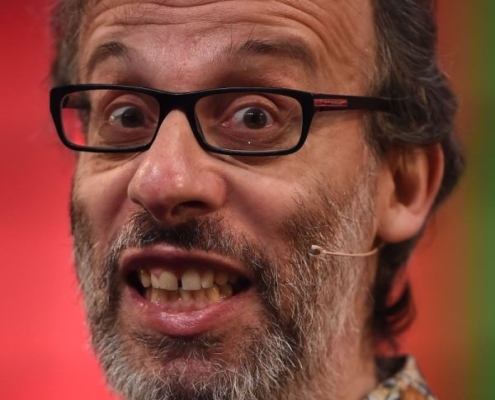 The anti-White and anti-British Jewish comedian David Schneider
The anti-White and anti-British Jewish comedian David Schneider Lying propaganda from Germany: Blacks and other non-Germans are described as “typical Germans”
Lying propaganda from Germany: Blacks and other non-Germans are described as “typical Germans” Dan Rosenfeld, Jewish swamp-creature
Dan Rosenfeld, Jewish swamp-creature A remarkable immigrant whom leftists aren’t interested in: the
A remarkable immigrant whom leftists aren’t interested in: the 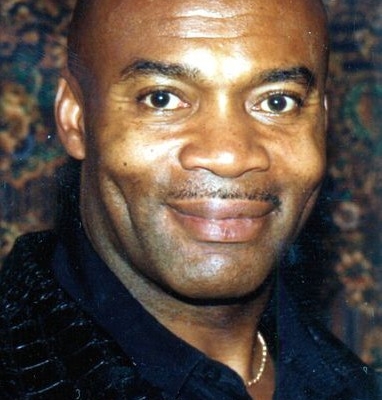 Another remarkable immigrant whom leftists aren’t interested in: the mass gerontophile rapist Delroy Easton Grant
Another remarkable immigrant whom leftists aren’t interested in: the mass gerontophile rapist Delroy Easton Grant
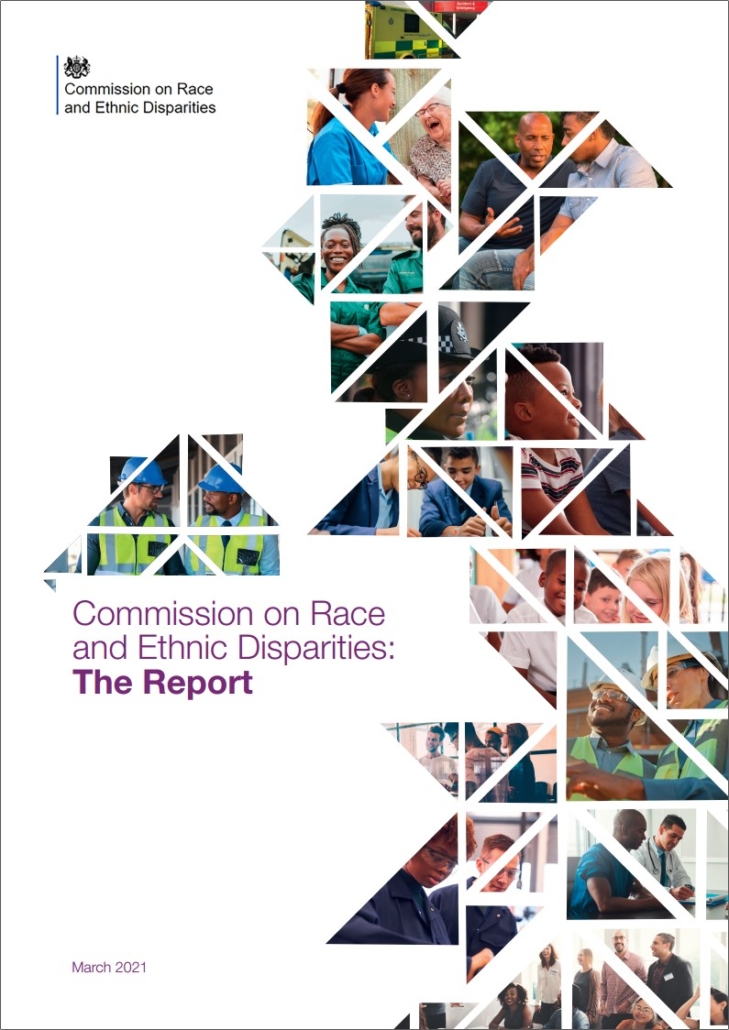
 The talentless and unintelligent Linton Kwesi Johnson
The talentless and unintelligent Linton Kwesi Johnson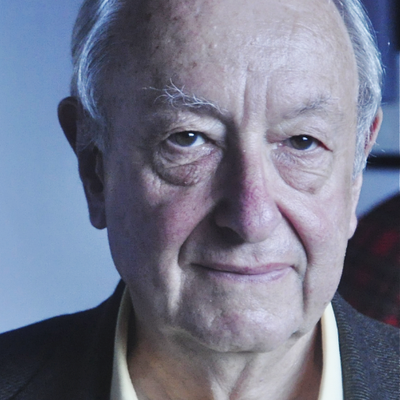 Anthony Lester,
Anthony Lester, 